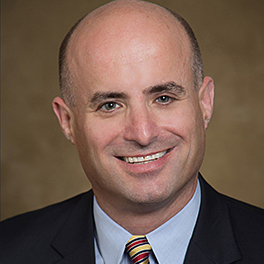Hi, I'm Billy Gwaltney and this is the CYA podcast. This show is for the physician who understands the importance of protecting everything you've worked so hard to achieve. Each week I'll bring you tips and advice to help you cut through the clutter and misinformation and show you exactly what you need to preserve your income and way of life. If you're ready to achieve the peace of mind that only financial security can bring. Let's get started.
Welcome to today's episode of the cover, your assets podcast. This is Billy Gwaltney your host, and I am very happy to be with you today as always the title of today's program, we're going to cover what are the most common types of disabilities that occur for physicians and professionals, which is an excellent question. In a previous podcast, we talked about how the statistics bear out that a physician or professional in his or her thirties who's healthy nonsmoker has a normal BMI has almost a 25% chance of becoming disabled for three months or longer during their career.
(01:08): And there's almost a 40% chance of that disability lasting five years or longer. That's significant if disabled and having a disability that lasts five years or longer private coverage in a lot of cases would be the only way to maintain your financial standing at all. It'd be devastating. Otherwise. Now we'll cover at this point, what are the most common disabilities? The first thing to recognize is that over 90% of all disabilities or illnesses, not injuries, most people think of getting coverage for a car accident surgeons occasionally refer to disability insurance as hand insurance in case they cut off a finger or hurt a finger, or what have you. And while those things can certainly happen and it's wise to have coverage for accidents and for injuring hands and fingers, the vast majority of disabilities or illnesses, and those statistics show that musculoskeletal disorders account for 29% of disability claims that lasts longer than 90 days cancer accounts for 15% pregnancy complications from pregnancy account for almost 10%, 9.4% mental health issues, including depression and anxiety account for 9% and injuries such as fractures or sprains or strains or of muscles or ligaments account for 9% of disability.
(02:39): So again, over 90% of claims for private disability coverage are illness related, not injury-related. So the question becomes, what does this mean when it comes to a physician? Well, one thing it means is that disabilities that keep a surgeon from performing their specialty will often impact a non surgeon's income as well. I do get asked by non surgical specialties about, Hey, you know, I could do my job from a wheelchair. I can do my job from from anywhere. So why's disability insurance important for me. Well, again, given the statistics, let's give an example. I have a herniated disc in your back and you can't get to work. And let's assume that it's material and important to your job for you to physically show up to clinic or to your, to your job at some point sooner, probably than later, your income is going to be impacted if you can't show up to work.
(03:37): And so the question becomes, is that something that you would want to have covered a group disability policy or, or non-specialty disability policy? You know, if you can't get to work, but you're otherwise healthy, is that considered to be disabled? Well, that that can be muddy pretty quick. When it comes to a properly designed a true specialty own occupation policy, if it's material for you to be at work and you can't be at work, then there's a really good chance that would be a disability. Now, there can be a difference as to far as to whether or not that would be classified as the total disability or a partial disability, depending on your side specific duties. But that's important to know that the things that will sideline a surgical specialty often are the same things that would sideline and nonsurgical specialty. I think those are important things to factor in as you consider the likelihood of this happening to you and whether or not it's worth the premium to allocate, to be sure that your insurance is in place.
(04:39): The other thing to factor in is as important is that the disability doesn't have to last to age 65 for it to have devastating financial impact. Again, if someone has to go a five year period or a 10 year period, or even a one year period without their income coming in, while the expenses continue to come in and statistically expenses typically go up during a claim for medical costs and those kinds of things, having coverage or these types of disabilities, even if it doesn't last for what you might consider to be an extended period of time is still important because otherwise any retirement savings or college funding savings or other liquid assets would have to be tapped into and often drained to zero, if private coverage is not in place, I hope you found this time. I think it'd be helpful. Again, I, I strive to keep these podcast topics short and sweet and get to the point. I would love to discuss your situation in more detail. If that's helpful to you, please feel free to reach out and text me anytime to arrange a call or with questions. My number is (704) 270-2376. Again, that's (704) 270-2376. I'd be happy to discuss your situation any time until next time. This is Billy Gwaltney. And again, I appreciate your time. Thank you for carving out a few minutes.
(06:16): This is ThePodcastFactory.com.




